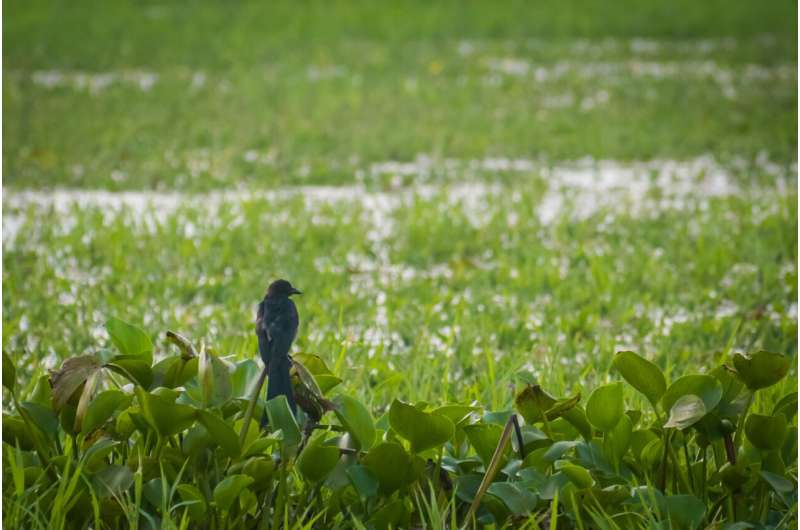This article has been reviewed according to Science X's editorial process and policies. Editors have highlighted the following attributes while ensuring the content's credibility:
fact-checked
proofread
Less affluent countries found to be more prone to damage caused by biological invasions despite lower trade volume

Non-native species introduced mainly via increasing trade of goods and services have huge economic, health, and environmental costs. These "biological invasions" involve the intentional or unintentional transport and release of species beyond their native biogeographical ranges, facilitating their potential spread.
Over the last few decades, invasive species have incurred an average cost of at least US$26.8 billion per year globally, and are predicted to continue increasing. Investing in early management to control their potential damage and spread is widely recognized as more cost-effective than waiting until an invasive species demonstrates clear impacts.
However, there is limited information available demonstrating whether a country's capacity to manage its invasive species is effective at limiting future damage.
A new study published in the journal Ecological Economics found that while more affluent countries with higher economic activity are vulnerable to more damage from invasive species, they also have the highest potential to limit damages incurred by investing more in management.
Consequently, a nation's economic capability partially determines the efficacy of investing in the control and prevention of invasive species.
The study, led by Professor Corey Bradshaw from Flinders University (Australia), is the first global-scale investigation of the cost-effectiveness of management and intervention of invasive species.
"Based on the data compiled in the InvaCost database, our analyzes show that the most affluent nations with sufficient economic capacity to invest in controlling their invasive species reap the biggest rewards by reducing damages in the long term," said Professor Bradshaw.
"Lower-income nations often struggle to allocate enough resources to manage their invasive species, so they suffer relatively more damage as a result."
Co-author Dr. Danish Ali Ahmed from Gulf University for Science and Technology (Kuwait), said, "Our study indicates that lower-income countries possess a clear disadvantage in mitigating the substantial economic losses caused by invasive species.
"Importantly, our results show that it is prudent for wealthier nations to invest in controlling invasive species within less-capable neighboring countries, because wealthy nations are also vulnerable to more invasions originating from potentially their less-prepared neighbors."
Professor Bradshaw adds, "Such a form of international assistance serves all affected nations, and could ultimately reduce the impact of invasive species across the entire world."
More information: Corey J.A. Bradshaw et al, Damage costs from invasive species exceed management expenditure in nations experiencing lower economic activity, Ecological Economics (2024). DOI: 10.1016/j.ecolecon.2024.108166
Provided by Gulf University for Science and Technology


















